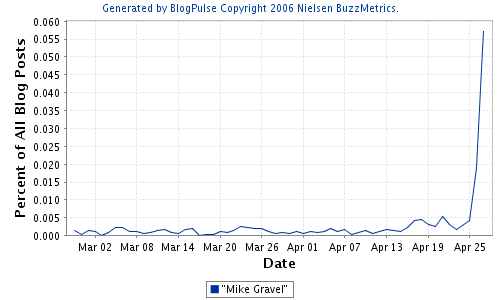by way of background
Monday, April 30th, 2007Mull this for a moment, and…
The following comes from Tim Wohlforth’s 1994 book The Prophet’s Children: Travels on the AMerican Left, and is somewhat redundant to this here. As a matter of course, I think this book excerpt is a little more lucid, maybe simply because it is situated in a longer narrative, and ultimately one of more significant reach.
I pass this along with an admission that I am pouring through a different book co-written by Wohlforth, On the Edge: Poltiical Cults Right and Left, for a somewhat more pertinent and diabolical post, which may just end up being a few excerpts from this book which serve as very specified case studies and may have me actually having something to say, which would be entitled “How to Dissolve a Cult“. Useful to whom, I can’t quite say.
Shouldn’t I be mocking the latest political Prostitution Scandal or something?
……………………………………………………..
That year we got our next wave of recruits from the SWP, and we could not have done worse. We began discussions with LL. I had known Lyn just a little when I was an SWP member. He lived in a nice apartment on Central Park West with his wife, Janice, and small child. Lyn earned his living at the time as an economic consultant, playing no role at all in the party discussions in the 1961 to 1964 period. After we had all left, L suddenly stirred from his slumbers and started submitting lengthy documents to the SWP discussion bulletin. He developed positions that at least appeared to be close to ours, and we began a collaboration.
He had by then left his Central Park West wife and was living in the Village with Carol Larrabee (Schnitzer, White), a woman who had joined the SWP during the regroupment period. L had a gargantun ego. A very talented, brilliant fellow, he was convinced he was a genius. He combined a strong conviction in his own abilities with an upperclass arrogance that, happily, I rarely encountered in radical circles. He assumed that the famous comment in the Communist Manifesto, that a “small section of the ruling class cuts itself adrift, and joins the revolutionary class” was written specifically for him.
The characteristics of L’s thinking process, which he would later develop to reactionary extremes, were already present when I knew him in 1965. He possessed a marvelous ability to place any event in the world within a larger perspective, a talent that seemed to give the event meaning. The problem was that his thinking was schematic and lacking in factual detail, and ignored contradictory considerations. His explanations were just a bit too perfect and his mind worked too quickly that I always suspected that his bravado covered superficiality. L had the “solution” to anything and everything. It was almost like a parlor game. Just present a problem to L, no matter how petty, and without so much as blinking his eyes, he would come up with the solution, usually prefacing his remarks with “of course.”
I remember private discussions I had with L in 1965 when he went on at length about Kennedy, Rockefeller, and the Trilateral Commission. L held to a view that there existed a network of foundations and agents of the more moderate, internationalist-oriented, Eastern-based capitalists who sought to avoid unrest at home through reform projects and to avoid revolution abroad through development programs like the Alliance for Progress. He was very much a believer in conspiracy theories. I, even in my most ultraleft days, was a bit of a sceptic. For L, even as a radical, the liberals were the main enemy.
I was distrubed by L’s thinking process in those days. I do not claim to have realized then where he would end up, but he definitely made me uncomfortable. He seemed to be an elitist with little interest in the plight of ordinary people. His ideas were too schematic and mechanical for my taste. I could not agree with the position he expounded in that period that the Vietnam War was a battle over Vietnam’s capabilities of becoming the breadbasket for the industrialization of Asia. I also was suspicious of conspiracy theories.
L stayed with us only six months — I think our little group was not big enough to contain him — and he moved on to Robertson’s Spartacist League. Unable to win this group over to “Lism”, Lyn and Carol left after a few months. Sometime later we got a letter from him in which he announced that all factions and sections of the Trotskyist Fourth International were dead and that he and Carol were going to build the Fifth International. I suppose, in a way, this is what he thinks he has done.
I continued to follow L’s political evolution after he left our group. Dennis King, who has made a study of L, has noted that I was “one of the first observers to spot something amiss.” In the beginning of 1967 L and his wife joined a relatively broad coalition of New Left intellectuals called the Committee for Independent Political Action. He gained control of the West Village CIPA branch and started gathering a coterie of young intellectuals. He had finally discovered his milieu, and success swiftly came his way. Through a combination of rather high-level classes and spirited polemics, L won over a group of graduate students, most of whom were members or sympathizers of Progressive Labor. Progressive Labor was in that period at the height of its strength within SDS. L’s gifted young intellectuals included […]
It was the Columbia University occupation and student strike in 1968 that established Larouche on the left. The student movement there was being led by SDS. There were two main factions in SDS, reflecting a split developing in the national organization: Mark Rudd’s Action Faction, and a somewhat more moderate group known as Praxis Axis. The rather appropriate names were coined by L. The Rudd group was interested only in provocative demonstrations and punch-ups with the cops. It would soon emerge as the Weatherman group of underground terrorists. The Praxis group was influenced by the French intellectual Andre Gorz, who held that a new working class was being created by modern technoloy. The students were the vanguard of the new working class. Gorz’s ideas gave the group a kind of mainstream “student power” perspective. L captured most of the PL-SDS group at Columbia and was able to come forward as a relatively strong third alternative. He presented a plausible program for linking the struggles of the students with the struggles of the surrounding poor black community. This was a period when many students radicalized by the Vietnam War and the black struggle were beginning to look for a way to carry the leftist struggle beyond the campus gates. L appeared to some to have a program that could fulfill this wish.
After quickly regrouping his followers into the SDS Labor Committee (later to become the NCLC), L began to hold meetings in the Columbia area. From time to time I attended these meetings. Some twenty to thirty students would gather in a large apartment not far from Columbia. They would sit on the floor surrounding L, by now sporting a very shaggy beard. The meeting would go on at great length, sometimes for as long as seven hours. It was difficult to tell where discussions of tactics left off and an educational presentation began. The students were given quite esoteric assignments, such as searching through the writings of Sorel to discover the anarchistic origins of Rudd, or studying Rosa Luxemburg’s The Accumulation of Capital. For some reason, perhaps because the SDS movement was strong on spirit and action but rather bereft of theory, L’s ruminations found a home.
L in this period developed a series of ideas by extracting and distorting some theories from the Marxist tradition. Even today, from his right-wing position, he retains this element in his thinking. He held these ideas, in an elementary way, even in the period of his membership in our organization. Most important was his Theory of Hegemony. He wrote in 1970: [consult the book yourself.]
L drew this notion from his interpretation of Lenin’s What Is To Be Done?, where Lenin speaks of intellectuals bringing socialist conciousness to the workers. He then expanded it by drawing from Gramsci’s notion of hegemony. L’s goal was to forge an intellectual elite corps that would gain hegemony on the left and then capture from on high the allegiance of the masses. I am not arguring that L’s interpretation of Lenin and of Gramsci was in any way an accurate one — Gramsci, for example, was a strong believer in an automonous working-class movement — but only showing which strands of the Marxist tradition appealed to L and motivated him and his followers in his radical period.
A necessary corollary of L’s concept of a superior intellectual revolutionary elite is the concept of an inferior class. Here L distorted Marx’s distinction between the class itself (ordinary conciousness) and the class for itself (socialist conciousness). he also made heavy use of Lenin’s polemic against the “economists” in Russia who, in Lenin’s opinion, were adapting to the backwardness of ordinary conciousness of the workers. It appeared that L and his followers, even in their radical stage, had a low opinion of ordinary human beings. In 1969, for example, L followers Steve Fraser and Tony Papert wrote about forcing “working people and other groups to begin to part with their habitual swinish outlooks.”
The second strand of L’s thought was his Theory of Reindustrialization. This concept remains the heart of his current economic theory and rightist agitation. L began with a rather orthodox theory of capitalist crisis derived from Marx’s Capital and Luxemberg’s The Accumulation of Capital. He was convinced that capitalism had ceased to grow, or at least ceased to grow sufficiently to meet the needs of the country’s poor. This created an economic crisis that would only worsen. he believed international capitalism was on the brink of entering what he called the “third stage of imperialism” (see his pamphlet of the same name published in 1967). The “third stage of imperialism” was an attempt by the developed nations to overcome the stagnation at home and revolution abroad by formenting a new industrial revolution in the third world. L expected this to take place in India. His idea was the advanced nations would use their unused capacity to make capital goods and export them to India, setting up factories that would employ the country’s surplus work force.
At this point in the argument L borrowed from his Trotskyist background to develop a transitional program that would, he hoped, motivate the masses to support him so that he could resolve this worldwide crisis of capitalism. Trotsky proposed a program that addressed the immediate needs of masses of people in the hope that the struggle around these demands would lead the people to realize the need for socialism. L hoped to win the support of American workers by promising that his program would supply jobs. For example, during the Vietnam War his idea was to reconvert the war industries to this peaceful reindustrialization.
This entire economic schema, which made up the bulk of Lites writings and agitation in the late 1960s and early 1970s, was presented in an increasingly frenetic manner, bolstered by predictions of economic doom. L was a crisis-monger of the first order — though our group gave him a run for his money. L and his followers became increasingly convinced that the fate of the world rested with their group and with their leader — LL, Jr. The resources, both technological and human, were present for this glorious economic transformation. The problem lay with the cussed stupidness of the nation’s leaders and swinishness of the masses. If only L were in power all the world’s problems would be dwelt with swiftly.
In the early 1970s, as the Left in the United States shrank under the impact of conservative times, L lashed out with a series of attacks on the SWP and the CP. Soon his group was denouncing all leftists and seeking support from extreme right-wingers. The Lites began mouthing anti-Semitic phraseology, promoting the nuclear power and arms industry, advocating a Star Wars defense, and baiting gay people. The old Trotskyite, a member of my own small organization, had emerged as a Fascist! I am most struck by the elements of continuity in L’s thinking. This where I believe there are lessons for the Left.
Most important is L’s elitism. Ordinary human beings were viewed by L the leftist and by L the Fascist as a swinish element to be manipulated. L never absorbed the humanist and compassionate side of the Marxian socialist tradition. He is not alone in expressing this defect. We need only think of Stalin, who could ruthlessly permit the death of millions of peasants and consciously purge and murder hundreds and thousands of his own Communist cadres, all in the ostensible interests of “history”. A more recent example is Pol Pot’s conduct in Cambodia. Only socialism rooted in humanism can any longer be considered socialism. Once an individual, party, or state is no longer anchored in this view, then terms like “left” and “right” lose any significance.
In fact it is quite remarkable how the “new” L organizes his followers in a Leninist cadre fashion, drives them with a vision of their historic tasks and necessity of their actions, and successfully reaches layers of society with “transitional” slogans that appeal to economic needs or old prejudices.





